Retro Replay Review
Gameplay
Hercules lives up to its billing as “The Ultimate Challenge” with relentless, flick-screen platform action that demands precision and quick reflexes. Instead of a smooth scrolling environment, each area is a separate screen packed with hazards, gaps, and enemies that spawn unpredictably. After each life lost, the game shuffles these screens, so memorizing a safe path through the labyrinthine levels becomes almost impossible.
(HEY YOU!! We hope you enjoy! We try not to run ads. So basically, this is a very expensive hobby running this site. Please consider joining us for updates, forums, and more. Network w/ us to make some cash or friends while retro gaming, and you can win some free retro games for posting. Okay, carry on 👍)
Adding to the tension, there are no weapons or projectiles for Hercules to fend off creatures. You rely solely on timing your jumps and using momentum to avoid bats, snakes, harpies and other mythological beasts. The frantic pace of enemies and the human reaction time needed to clear each screen results in a punishing difficulty curve that nudges even seasoned platform veterans to their limits.
A signature twist is that every platform ignites a few seconds after you land on it, forcing constant forward motion. There’s no opportunity to linger or map out a leisurely route. This fiery timer mechanic transforms simple leaps into nerve-wracking sprints, keeping the adrenaline high and punishing anyone who hesitates for more than a heartbeat.
Graphics
On 16-bit systems, Hercules sports bold, vibrant colors that bring each screen to life—trapdoors glow ominously, while mythic beasts contrast sharply against richly detailed backdrops. These graphical enhancements add depth to key setpieces, whether you’re scaling a mountain temple or sneaking past a fire-breathing dragon. Despite the limited palette, character sprites are well-defined, and the animation, though simple, conveys enough weight to every leap and fall.
In contrast, the 8-bit versions take on a more minimalist aesthetic. Though the scenery loses some texture, the designers cleverly use contrasting hues to distinguish hazards from safe ground. Creature animations are more rudimentary, but they retain enough personality to keep encounters memorable. In both versions, flick-screen transitions remain crisp, ensuring that sudden respawns feel immediate rather than jarring.
Level variety shines through in the environmental design. From torch-lit caverns to storm-hammered peaks, each screen feels distinct. Even when the order is randomized, the game’s visual language helps you recognize recurring elements—broken pillars, crumbling staircases or spiked pits—so that over time you can learn to anticipate danger, despite the shuffle.
Story
The narrative in the 8-bit Hercules is simple but effective: you undertake Titan-style tasks—pushing boulders, retrieving artifacts, and facing mythical guardians—to prove your heroic worth. There’s a certain charm in this stripped-down mythological quest, where every screen represents a new “labor” you must endure without fanfare or exposition.
In the 16-bit version, the game weaves in a poignant twist: Hercules’s daughter, Yolanda, is cursed by Hades and can only be freed by completing these same trials. This personal stake elevates the gameplay loop, turning each narrow corridor and flaming platform into a rescue mission. The manual and title screen hint at this emotional undertone, offering a rare glimpse of vulnerability in an otherwise muscle-bound protagonist.
While cinematics are nonexistent, basic cutscenes or text screens between worlds set the stage for your next challenge. These brief respites provide context but never overshadow the core gameplay. It’s a lean approach to storytelling that respects your time while giving just enough lore to keep you invested in reuniting father and daughter.
Overall Experience
Hercules is not for the faint of heart. Its punishing difficulty, combined with randomly ordered screens and an unrelenting pressure to keep moving, makes each session feel like a fresh gauntlet. You’ll die—often—and you’ll learn through repetition rather than hand-holding tutorials. If you thrive on trial-and-error mastery, this game offers hours of electrifying frustration.
The absence of combat tools shifts the emphasis squarely onto platforming skill. Every jump, every sprint across burning platforms, and every narrowly avoided enemy contributes to an intense, arcade-style pulse. Garden-variety platformers with weapons do not hold a candle to the raw, unforgiving purity of Hercules’s design.
Despite its brutal reputation, Hercules delivers a compelling journey both visually and mechanically. Whether you’re motivated by the mythic rescue of Yolanda or the relentless thrill of conquering an “ultimate challenge,” this title deserves a place on your shelf. It’s a testament to classic platforming: brutally hard, defiantly unorthodox, and infinitely rewarding once you finally overcome its trials.
 Retro Replay Retro Replay gaming reviews, news, emulation, geek stuff and more!
Retro Replay Retro Replay gaming reviews, news, emulation, geek stuff and more!

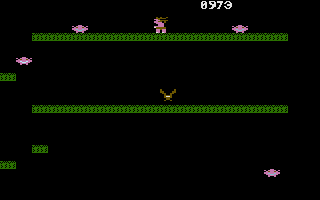
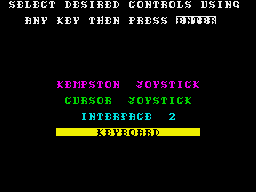
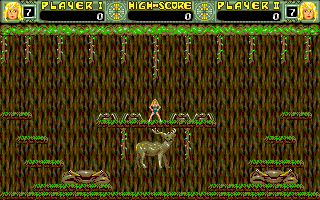

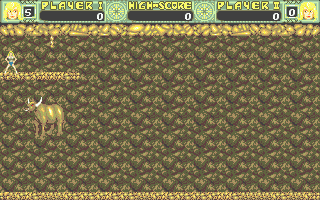

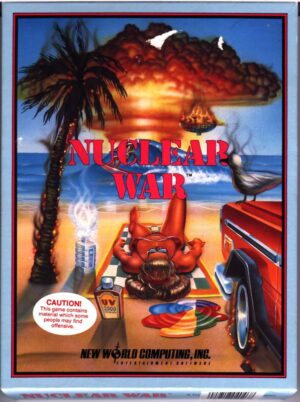

Reviews
There are no reviews yet.